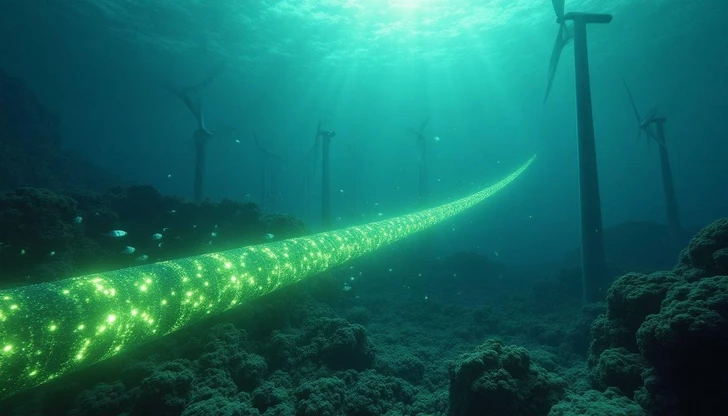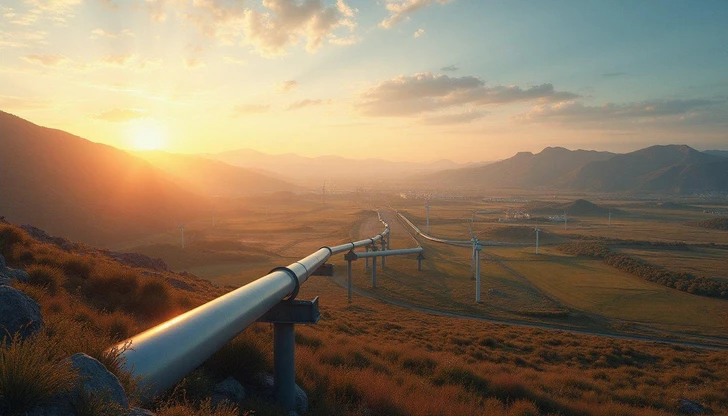Slovenia supports the implementation of the Black Sea Energy underwater cable project and is open to exploring potential forms of participation in it.
This was reported by the Ministry of Environment, Climate, and Energy of Slovenia to Report.
The ministry emphasized that one of the promising areas of cooperation with Azerbaijan is the development of green energy.
“Facilitating cooperation in the field of renewable energy sources and other clean technologies, including hydrogen, is one of the objectives of the Memorandum of Understanding signed between the energy ministries of Slovenia and Azerbaijan on April 4, 2025,” the ministry stated.
Slovenia also supports the investment activity of its companies in the field of renewable energy, both domestically and abroad, including Baku.
The ministry noted that Slovenian energy companies, particularly transmission system operators (TSOs), have established themselves as innovators in smart grid technology.
“We support any form of cooperation in smart grids, hydrogen energy, energy storage systems, and the integration of renewable energy into the energy system. These areas may also include the involvement of research institutes, including in partnership with Azerbaijan,” the ministry emphasized.
Slovenia also welcomes the deepening of cooperation between Azerbaijan and the European Union in hydrogen and expresses its readiness for further discussions on expanding this cooperation.
“We look forward to further discussions on strengthening bilateral and multilateral cooperation in the energy sector,” the ministry said.
The ministry also highlighted Azerbaijan’s successful presidency at the COP29 conference, stressing that the country has demonstrated leadership in renewable energy and is in an excellent position to actively participate in IRENA (International Renewable Energy Agency).
It is important to note that the Black Sea Energy project involves the construction of an underwater cable to transmit green electricity from the Caucasus to Europe. In December 2022, Azerbaijan, Georgia, Romania, and Hungary signed a strategic partnership agreement within the framework of the project. In 2023, Bulgaria announced its intention to join the initiative.
In May 2024, energy operators—AO “AzerEnergy” (Azerbaijan), Transelectrica SA (Romania), Georgian State Electric System, and MVM (Hungary)—signed a Memorandum of Establishment of a Joint Venture, and in September, they signed a shareholder agreement to create the Green Energy Corridor (GECO).
The first stage of the cable will be designed for the export of up to 4 GW of green energy. The construction is estimated to cost 3.5 billion euros and will take 3-4 years. The European Commission plans to allocate 2.3 billion euros for the implementation of the project. The completion of the technical and economic feasibility study is expected in the third quarter of 2025.




